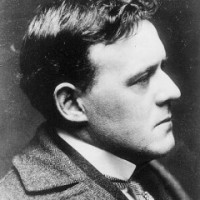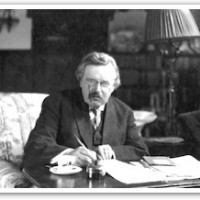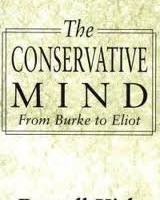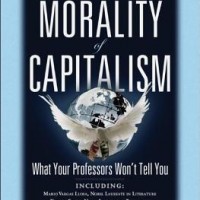Why Belloc Still Matters, by R.J. Stove
An author too robust and significant to be wholly un-personned can still be marginalized. Consider this elegant pasquinade, which years ago won a parody-contest award in Britain’s New Statesman and which employs the same rhyme scheme and meter as Hilaire Belloc’s own “The chief defect of Henry King”:
The chief defect of dear Hilaire Was not the clothes he used to wear, The curious hat and monstrous cloak, Paraded as some kind of joke. No, Hilaire’s fault, and well he knew it, Was, all he did, he’d overdo it… There’s more—he held the strongest views On politicians, and on Jews, Such as, today, might give one cause To think of Race Relations Laws. But that of Belloc is the worst That can be said. His comic verse, His Cautionary Tales, his Peers, His Beasts will last for countless years, Delighting readers old or young Who share Hilaire’s adopted tongue.
Well, that’s put Dear Hilaire back in his box, hasn’t it? If Belloc’s entire literary merit lies in his having catered to the A.A. Milne and Edward Lear demographic, we need no more bother ourselves with his wider aims than seek deep epistemological insight from re-reading about Pooh Bear or The Dong With The Luminous Nose. But then the New Statesman has never claimed theological expertise. Others, who do possess such claims, and who in many instances share Belloc’s Catholicism, have been at least as hostile. Malcolm Muggeridge complained, “although he has written about religion all his life, there seemed to be very little in him.” Six years before the Latin Mass’s recent anti-Belloc enfilade, St. Louis University’s James Hitchcock (in the May 1996 issue of Crisis) likened Belloc to “a man with a machine gun—by spraying shots everywhere he inevitably hit some targets, but many of his bullets went astray.” This allegation can at any rate be argued over, unlike certain antics of the occasional self-confessed Belloc fan. (Such as John Anderson, who passed as the doyen of Australian philosophy during the 1930s, 1940s, and 1950s and who labored with surrealistic persistence to reinterpret Belloc’s Servile State as a sacred text for antipodean atheist head-kickers. When Belloc’s friends included historical illiterates like Anderson, he hardly needed foes.)
How stands the case for the prosecution? In particular, was G.M. Trevelyan, Regius Professor of History at Cambridge 1927-1940, justified in having flatly called Belloc “a liar”?
Occasionally, alas, yes. Belloc confided as much himself, to a co-religionist at that: the British historian, newspaperman, and editor Douglas Woodruff. While going several debating rounds in print against his merciless ultra-Protestant detractor, the once-celebrated controversialist G.G. Coulton, Belloc came out with one assertion so breathtakingly implausible that it moved Woodruff to inquire, “But is it true?” “Oh, not at all”, Belloc retorted. “But won’t it annoy Coulton?” Such a deliberate, impolitic falsehood clearly sprang from insensate bravado rather than from malice. It is doubtful, moreover, whether the historian who hastily and occasionally deceives others is half as dangerous as the historian who consistently and lucratively deceives himself. (Many a reader obligated to plow through the unrelenting sanctimony of more recent and more fashionable gurus than Belloc—Arthur Schlesinger expounding the immaculate conception of JFK; Eric Hobsbawm assigning a similar redemptive role to the proletariat; Francis Fukuyama hyperventilating about free-market dogma’s limitless appeal to any polity, however Lower Slobbovian—must have felt increasingly inclined to welcome from these sources an honest lie or two.) Still, Belloc’s mendacity at that juncture defies excuses and leaves behind a singularly nasty odor.
An even graver sin, curiously slighted by Belloc’s most recent biographers, A.N. Wilson (Hilaire Belloc, 1984) and Joseph Pearce (the shorter, more reverential Old Thunder: A Life of Hilaire Belloc, 2002), occurs repeatedly in Belloc’s analyses of the French Revolution. Notwithstanding the fervor with which pope after pope—especially, in Belloc’s youth, St. Pius X—had declared support for Jacobins and indeed Girondins to be incompatible with the most basic Christian decency, Belloc remained as eupeptic as any Charles James Fox about the entire pageant of French politics from the Bastille’s fall via Robespierre to Napoleon. Revolutionary genocide against the Vendéens and Chouans scarcely touched Belloc’s consciousness. On his last (1937) tour of the U.S., he accused Americans of wanting to hear “48,376,277 times…that war is all wrawng and why cahunt everyone in Yurrup live peaceably same as us; that Religion don’t count same as it useter ’cos there’s more enlight’nment now.” So he could perceive, and denounce, lunatic world-saving Wilsonian optimism when it fell from his hosts’ lips. Why that optimism somehow became acceptable when the increase in “enlight’nment” had been effected by the guillotine, instead of by American presidential overreach, Belloc never explained.
This all amounts to a grim indictment. What case for the defense can outweigh it? There actually exist two such cases: first, Belloc’s daunting percipience; second, his equally daunting versatility as a poet.
Read the complete article in The Imaginative Conservative
Let human bodies stay priceless, by Margaret Somerville
It’s been reported that two Canadian companies are willing to pay blood donors to get their plasma. Plasma is used to produce immunoglobulin, a high-cost treatment for diseases that include cancer.
Is there something inherently wrong in commodifying and commercializing the human body, selling our organs or tissues?
Some people believe it offends human dignity to treat the body as an object and just another item for sale. Others see respect for individual autonomy and choice as required to respect human dignity and allowing sale as necessary to honour these values. These two positions focus at different levels and embrace different concepts of human dignity.
The former sees dignity as inherent simply to being human and is concerned to uphold respect for both the dignity of each individual person and human dignity, in general, at the societal level. This requires that the human body be “hors de commerce.”
Adherents of the latter view see individual persons having control and choice as necessary to respect their dignity, hence, if they want to sell their blood, they must be allowed to do so.
Ethics is always concerned with facts, especially about risks and harms. We have tended to assume a non-commercial blood supply is safer than a commercial one, on the grounds that people who sell blood are more likely to present health risks to the system than those who donate. That might not always be correct, because of other factors influencing decision-making that affect the safety of the blood system. Some commercial US blood banks proved to be safer than the Canadian blood system at the beginning of the HIV/AIDS epidemic. The owners acted faster to take as many preventive measures as possible because they feared law suits and financial loss.
Some people propose that the benefits of a market in tissues and organs for transplant would outweigh any risks and harms. For instance, Oxford philosopher Janet Radcliffe-Richards argues that setting up a market for organs is the best way to increase the supply and overcome present serious shortages. This is a social utility rationale and justification. In contrast, others fear that paying for plasma would divert people from being whole blood donors to paid plasma ones and cause a shortage of whole blood and also increase the costs of our health-care system.
Then there are justice issues: People who sell their organs or tissues are often poor and vulnerable, especially if they don’t live in developed Western countries, and those who buy are usually privileged persons. Connected with this reality is the danger of exploitation, bribery and corruption and, even when that is not the case, the disturbing image of middlemen making large profits out of one person’s poverty and another’s dire medical need.
Some respond that physicians and nurses are paid, and payment for tissues and organs is no different. But our moral intuition tells us there’s a difference between being paid for one’s services and selling one’s body or access to someone else’s body. In a different context, the old legal custom of the barrister having a small pouch behind his shoulder on the back of his gown, into which, after the trial, the client placed what he could afford to pay without the barrister knowing the amount, instantiates a comparable intuition.
Read the complete article in MercatorNet
G. K. Chesterton: It’s Not Gay, and It’s Not Marriage, by Dale Ahlquist
One of the pressing issues of Chesterton’s time was “birth control.” He not only objected to the idea, he objected to the very term because it meant the opposite of what it said. It meant no birth and no control. I can only imagine he would have the same objections about “gay marriage.” The idea is wrong, but so is the name. It is not gay and it is not marriage.
Chesterton was so consistently right in his pronouncements and prophecies because he understood that anything that attacked the family was bad for society. That is why he spoke out against eugenics and contraception, against divorce and “free love” (another term he disliked because of its dishonesty), but also against wage slavery and compulsory state-sponsored education and mothers hiring other people to do what mothers were designed to do themselves. It is safe to say that Chesterton stood up against every trend and fad that plagues us today because every one of those trends and fads undermines the family. Big Government tries to replace the family’s authority, and Big Business tries to replace the family’s autonomy. There is a constant commercial and cultural pressure on father, mother, and child. They are minimized and marginalized and, yes, mocked. But as Chesterton says, “This triangle of truisms, of father, mother and child, cannot be destroyed; it can only destroy those civilizations which disregard it.”
This latest attack on the family is neither the latest nor the worst. But it has a shock value to it, in spite of the process of de-sensitization that the information and entertainment industries have been putting us through the past several years. Those who have tried to speak out against the normalization of the abnormal have been met with “either slanging or silence,” as Chesterton was when he attempted to argue against the faddish philosophies that were promoted by the major newspapers in his day. In 1926, he warned, “The next great heresy will be an attack on morality, especially sexual morality.” His warning has gone unheeded, and sexual morality has decayed progressively. But let us remember that it began with birth control, which is an attempt to create sex for sex’s sake, changing the act of love into an act of selfishness. The promotion and acceptance of lifeless, barren, selfish sex has logically progressed to homosexuality.
Chesterton shows that the problem of homosexuality as an enemy of civilization is quite old. In The Everlasting Man, he describes the nature-worship and “mere mythology” that produced a perversion among the Greeks. “Just as they became unnatural by worshipping nature, so they actually became unmanly by worshipping man.” Any young man, he says, “who has the luck to grow up sane and simple” is naturally repulsed by homosexuality because “it is not true to human nature or to common sense.” He argues that if we attempt to act indifferent about it, we are fooling ourselves. It is “the illusion of familiarity,” when “a perversion become[s] a convention.”
Read the complete article in Crises Magazine
‘The Conservative Mind’ at 60, by Jeffrey O. Nelson
President Barack Obama’s decisive electoral victory this past November caused panic in some conservative circles. Questions about the continuing relevance of conservative first principles are common fodder for the chattering classes, both right and left.
But there is not much that is really novel in this latest conservative setback. Some 60 years ago, the chief role of conservatives was to resist and oppose, even as a Republican assumed the presidency. And almost 50 years ago, conservatives suffered an even more complete catastrophe at the polls.
One landmark book published in the spring of 1953 by a young Michigan State College professor began to change all that. Russell Kirk’s “The Conservative Mind” contributed to the re-imagining of American politics by countering the prevailing liberal narrative that there was no such thing as a conservative tradition in America.
Kirk did so by sketching intellectual portraits of key writers and statesmen from the 18th century to the present, each of whom had added to the deposit of conservative thought.
The 60th anniversary of Kirk’s book is a good opportunity to reflect on the prospects for conservatism today. For the past half-century, generations of conservative thinkers, journalists, and politicians have been moved by Kirk to confidently assert a new conservative vision. That vision was enough to elect presidents and congressional majorities.
So what does “The Conservative Mind” still have to teach a new generation struggling once again to find an authentic and convincing American conservative voice?
Below are a few ways in which Kirk’s book is more than a touchstone of a bygone era and instead remains a vital resource for conservative renewal.
Kirk was fond of quoting Napoleon about the power of the imaginative faculty. In the new world of electronic images, and now social media, the sway of abstract reason and discussion has declined and “the age of sentiments,” in Kirk’s words, has replaced it.
Kirk’s book was an extended exercise in the narrative application of imagination. He did not just outline an Anglo-American conservative genealogy, he imaginatively constructed, some say even invented, one.
What lingers with conservatives after reading Kirk is the striking impression of an encompassing spiritual standpoint; the disposition Kirk communicates is just as important as the particular arguments he advances. Well before today’s cognitive behaviorialists, Kirk understood that people are moved to act principally by feelings, intuitions and affections.
He also knew that such feelings proceed directly from thoughts, and so he set out to reframe popular thinking about conservative ideas in a positive way, and to elicit intelligent conservative action from his readers.
He often did so by evoking ideas expressed in literary and artistic works that appeal to the very sentiments Kirk believed conservatives were obliged to renew.
This approach is why optimism even in the face of defeat is so integral to Kirk’s vision. Kirk’s “imaginative conservatism,” as he termed it, still provides the best guide to constructing a positive vision that appeals to both mind and heart.
Successful conservative politics in America has always resulted from a balanced approach to economic matters and social concerns. The Clinton-era “It’s the economy, stupid” battle cry proved so tempting to business-minded conservatives that they adopted it with the aim to cast contentious social issues aside for good.
But in the face of events at home and abroad, conservatives are having to learn again that issues related to community and culture are the most intractable in politics. They will not go away. And seizing on the right social issues, with tact, is often what gives the conservative his winning edge in politics.
Strong social framework
Kirk championed a conservatism that embraced the dynamic economic power of markets within a larger, more stable social framework. Kirk believed that if the core institutions that comprise civil society — family, church, school, civic associations, hospitals, volunteer organizations — are strong and vibrant and left free from government interference to pursue their natural ends, then economic freedom would also flourish.
He also believed that economic prosperity would, in this arrangement, advance more evenly and with much less of the dislocation and disruption that has frightened the middle classes away from conservative policy positions in recent years.
Great Society-style politics may be booming just now, but studies demonstrate over and over that a bust is on the horizon. Conservatives have the opportunity—and the obligation—to prepare for the coming burst of the entitlements bubble by fashioning a compelling and workable alternative, which will inevitably rely upon economically independent and morally vibrant communities.
Kirk believed that a people flourish when their communities do. When civil society is strong, the national interest is advanced almost as a matter of course.
For conservatives to reclaim the allegiance of the middle class they will need to rise above the rhetoric of mere individualism, even as they resist, or turn back, the advance of the federal government in our lives. Conservatives will need to rediscover the language and policies of a political movement that puts communities first.
Capitalism vs. the Free Market, by Ivan Pongracic.
Greedy bankers, overpaid executives, anaemic growth, the stubbornly high unemployment—these are just a few of the things that have lately driven protesters on to the streets and caused the wider public in the developed world to become disgruntled about capitalism. The system, in all its different varieties, is widely perceived to be failing to deliver.”
This is how, in January of 2012, the Financial Times started its series “Capitalism in Crisis” (italics are mine). Even worse, the introductory article then continued, the above mentioned villains simply bought the politicians and “bought themselves protection from proper societal accountability.” So for the next four weeks, economists, politicians, editorial writers, and just about anybody else, attacked or defended something called “capitalism,” trying to offer explanations for what we have experienced in the last several years.
Two books reviewed here are, in a way, the continuation of this same battle. The Morality of Capitalism: What Your Professors Won’t Tell You is a short book edited by Tom G. Palmer, of the Cato Institute but also of Atlas Network and Students for Liberty. It consists of his Introduction and fourteen essays by fourteen different writers, all of them categorically defending capitalism as the best and most moral system of all economic systems tried so far. The book, unapologetically, offers the reader the Truth: “Capitalism is a system of cultural, spiritual, and ethical values. . . . Indeed, capitalism rests on a rejection of the ethics of loot and grab . . . [It is in other economic systems where] predatory elites use [a] force to gain monopolies and to confiscate the produce of others through taxes.”
As a professor, I must admit, I have no problem with defending a system so defined, but the question I pose is, has capitalism really proved itself so pure in the real life? We’ll come back to this in a moment.
Defending the Free Market: The Moral Case for a Free Economy, by Father Robert Sirico, president of the Acton Institute, has the same goal but a different approach. Through a personal story, Father Sirico tells us how he came to discover the Truth—actually two truths: economic and spiritual. Realizing that our country has a huge problem, he warns that “when a people surrenders their [sic] freedom to government—the freedom to make moral, economic, religious, and social choices and then take personal responsibility for the consequences—virtue tends to waste away and faith itself grows cold.” Only responsible people can save America. “Philanthropy, charity, voluntarism, activism, and care for the family and the poor are all related to the same impulses that drive the market economy: the peaceful and free association of people in the service of others.” Again, no problem in defending such a system, but is such a system possible at all?
Let’s turn, first, to some definitions, as one must be careful in word choice when economic systems are discussed. Palmer does insist, as the title of the book implies, on using the word capitalism. In the section “The History of a Word,” he tells us that the word was not invented by Karl Marx, as usually believed; it was already used in the twelfth and thirteenth centuries. Only with the birth of socialism did the word become a term of abuse. Despite his explanation, I, myself, see no reason for insisting on the word. Even several of the contributors in his book use terms like “the free market” and “the market economy,” trying to avoid a word so ambiguous and by now so ill-reputed. The above quoted article from the Financial Times insists on many variants of capitalism. Father Sirico himself calls it “admittedly a narrow and problematic word.” Palmer simply decided to shrug off such linguistic pedantry.
Unfortunately for Palmer, the term “capitalism” must be heavily qualified to have any meaning. The word has become so horribly unclear that it may have about as many interpretations as interpreters. It may describe financial capitalism, where mathematical geniuses are allowed to turn almost any piece of paper into wealth by using esoteric equations and giving them fancy names, like “synthetic CDO squared” instruments; the word may describe state capitalism, as in fascism and National Socialism, where governments decide what, when, and how to produce the things they deem important; it may describe free-market or entrepreneurial capitalism, as those who like the word usually call it; it may describe cowboy capitalism, as those on the left prefer to call it; or, finally, the word may describe crony capitalism, as Palmer himself does a couple of pages later. (Sirico tries to escape the traps of crony capitalism by naming that concept as cronyism, but the main problem persists: would the real capitalism please stand up?)
The fact is, for those less informed than Palmer (including perhaps those professors from the subtitle?), it is too easy to put all capitalisms in the same category and conclude that capitalism tends to devolve into an immoral system. Even Palmer sets himself up when he discusses crony capitalism. First, he tells us how Marx himself praised capitalism for improving productivity, for creating “a world literature,” for overcoming the hatred of foreigners, among other advantages. But then he quotes Marx as saying that the whole system is based on public credit. It is the state that helps the capitalists become richer, that protects them, and “[a]ll political upheavals perfected this machine instead of smashing it. The parties that strove in turn for mastery regarded possession of this immense state edifice as the main booty for the victory.”
Two pages later, in a section titled “Free-Market Capitalism vs. Crony Capitalism,” Palmer complains that we should never confuse the two. Sadly, he says, “crony capitalism is the term that can with increasing accuracy be applied to the economy of the United States, a country in which failed firms are routinely ‘bailed out’ with money from taxpayers, in which the national capital is little more than a gigantic pulsating hive of ‘rent-seeking’ lobbyists, bureaucrats, politicians, consultants, and hacks, and in which appointed officials of the Treasury Department and the central bank [the Federal Reserve System] take it on themselves to reward some firms and harm others.”
Isn’t that exactly what Marx just said? Is Palmer proving Marx right? Does capitalism inevitably end up in crony capitalism? And if so, how can Palmer declare capitalism not only moral, but the most moral of all economic systems?
Read the complete article in The University Bookman




